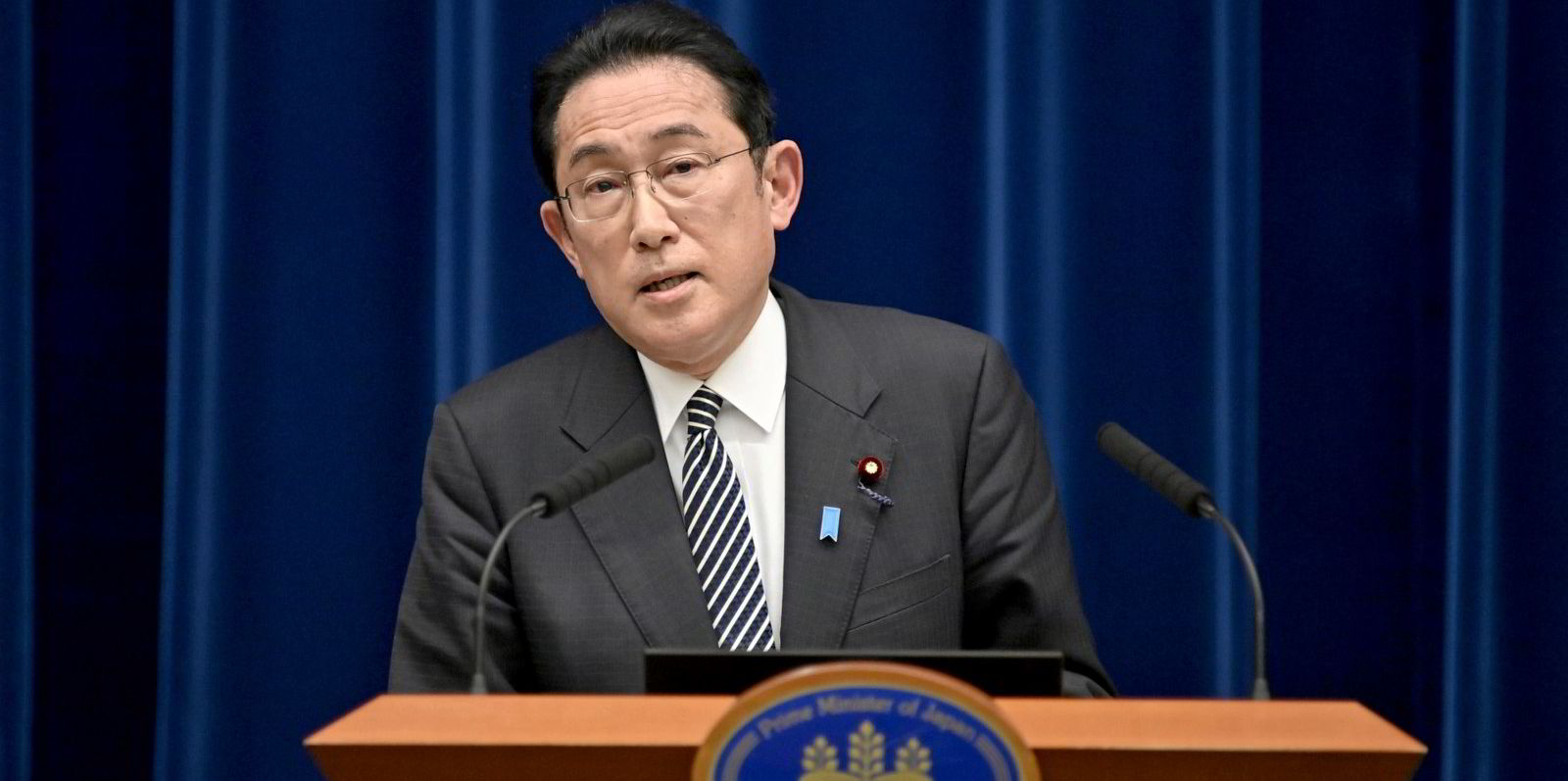Japan’s proposal to the International Maritime Organisation (IMO) for a market-based measure (MBM) to encourage decarbonisation is likely to lead to an initial carbon levy of around $56 per tonne.
As earlier reported by TradeWinds Japan is proposing a so-called feebate scheme.
The idea is a carbon levy on emissions will generate revenue to rebate owners which have taken on the additional costs of buying higher price zero-emission fuels.
The MBM, which will be discussed at an environmental meeting at the IMO next month, is being proposed as a way to spark shipping’s transition over to zero-emission fuels.
Japan’s initial estimation, based on future fuel price forecasts, indicates an initial $56 per tonne of carbon will be required from 2025 to encourage owners to switch fuels. The levy would raise around $50bn annually.
Under another scenario, Japan is suggesting a price of around $73 per tonne in 2025 could be set to provide an extra incentive for owners to buy zero-emission fuels like ammonia and hydrogen.
In its submission to the IMO Japan said: “Although the levy rate would vary depending on assumptions, a levy rate well below $100 per tonne of CO2 would likely ensure revenues to provide sufficient levels of incentives at least in the initial period.”
As the IMO is planning to target net-zero emissions by 2050 — based on Japan’s estimates — the carbon tax will have to be increased to as much as $1,284 per tonne by 2045, or $1,682 per tonne under the scenario where additional incentives are provided.
Higher rates
After 2040 it is estimated fossil fuel sales will fall requiring a higher levy to generate sufficient revenue. “A reduction in fossil fuel demand may require higher levy rates,” Japan said.
Under Japan’s proposal, the actual price of the carbon levy would be determined by the IMO every five years. The price is based on what the IMO estimates will be needed to incentivise the switch to alternative fuels.
The levy will also be collected by the IMO. Japan suggests a separate industry proposal for the establishment for a research and development fund from a $5 per tonne levy on heavy fuel oil sales could provide the basis for collecting funds generated by its proposed MBM.




